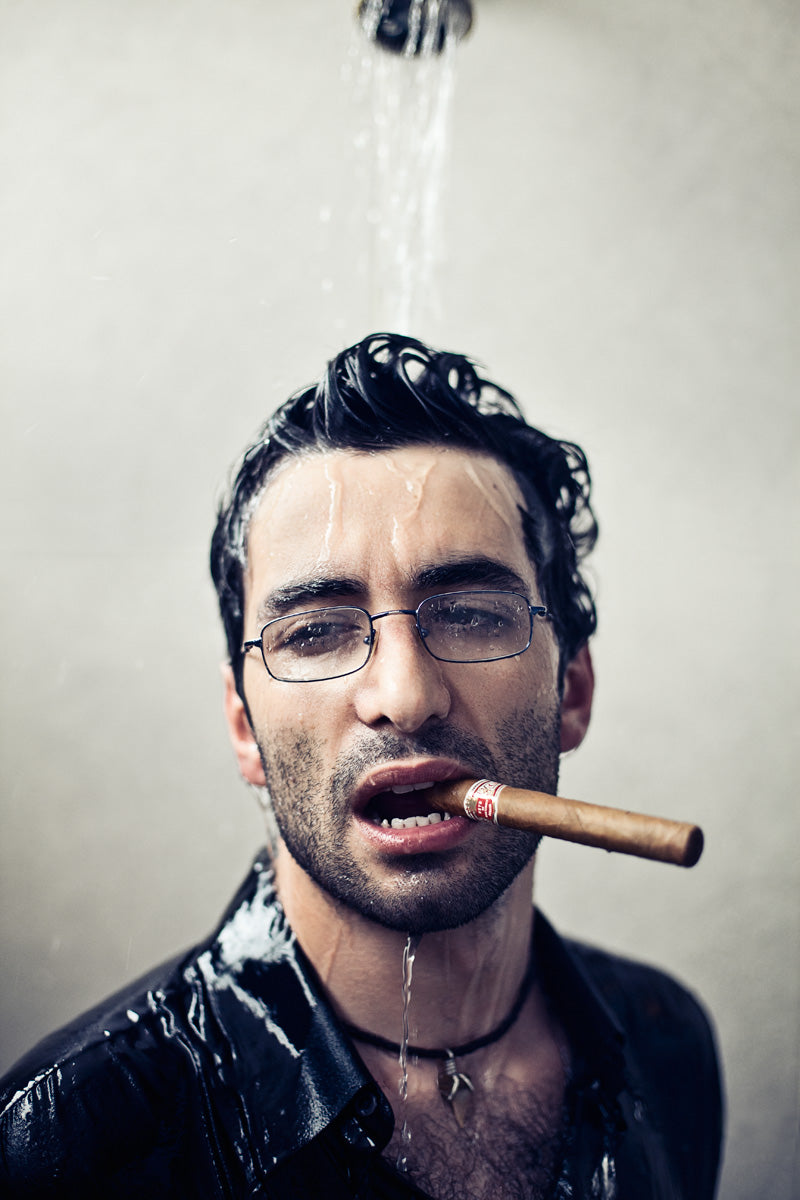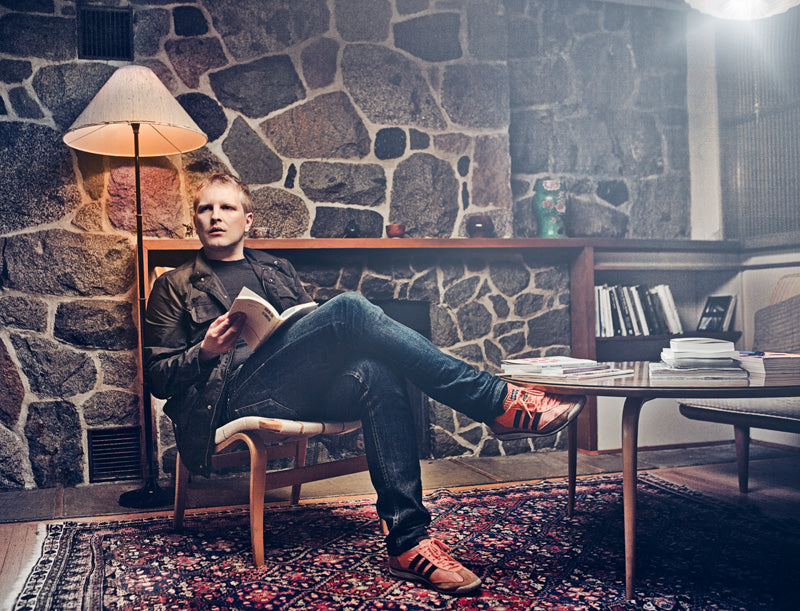I'm 31 years old, born and bred in Italy where I lived and worked until I was 25. I studied engineering and coached basketball for a living but one day I picked up an old film camera from my dad's collection, and I just fell in love with photography. I quit coaching, decided to complete my studies, and then give photography a try. I finished my last year of University studies in Sweden where I was for 7 months, went home, packed my 5D and some clothes, and I moved to Australia where I chased my dream.
At that point I had already done quite a few shoots. I'm one of those people that when I get passionate about something, there's just no half-way—I'm all in. I can't have hobbies, because I end up turning them into my job, which sucks at times, but it worked in my favor with photography as I learned pretty quickly, even if I've never had the chance to properly assist (which I now regret). So when I got to Australia, I showed my portfolio to a studio owner, and he hired me to do a bit of retouching and help run the studio. After a few months and several test shoots I started to work professionally—lookbooks, model portfolios etc. After 2 years and a few advertising gigs, I felt very uninspired and decided to leave with my partner (she's a photo producer) and we drove a VW van from Argentina to Canada, shooting video documentaries for international NGOs along the way. I've been working and living in Vancouver since the end of the trip.
I spend a lot of time doing research before the shoot. When the art director from the magazine contacts me I start picturing ideas in my head, and I just write notes down related to the shoot. I write about lighting I'd like to experiment with, locations, moods, and then I'll start building lists of references or simple ideas that I'd like to try. I'm pretty "directive" with my talents, and I like to be in control, so even when they do something spontaneous, it's usually the result of a situation created on purpose. The more I feel everything is 100% under control, the more I can set myself free of anxiety and pressure, so that I can focus on my subject, try to achieve what I envisioned, and feel free to also try a quick idea that I haven't thought of before.
I shoot with a 5D II and Canon lenses. I try to use primes when I can. Sometimes on editorials it's just easier and faster to shoot with the 24-70 since I can cut dead times to a minimum, which is really important when you don't have much time with your subject. I prefer 24mm, 35mm and 50mm in general, but recently I've been loving the 100L macro, which is an amazing portrait lens as well.
I also shoot 99% of the time with lights. I'm using Einsteins flashes (I love their portability—the battery is just so small and easy to carry around) and I have a mix of Elinchrom and PLM modifiers. I don't shoot much action, so recycle time is not a huge factor. The only times I wish I was using ProFoto (or Broncolor) is when I need the extra power outdoor. But for the price, I think the Einsteins are amazing.
I'd say the most important thing when taking portraits is keeping your focus and your connection with the subject at all times. This is why I stress so much about preparation and having plenty of time to execute what I want. If you start stressing about your lighting or composition while your subject is in front of you, you're not able to read his/her reactions, and it could turn into an awkward situation, and if that happens, it's very hard to regain the flow. So I always try to get to the shoot location well in advance (when possible) and decide the spot where I want to shoot. Then my assistant and I start putting lights up, so when the subject arrives I can then spend more time with them, try to get them comfortable and to trust me. I want them to feel that we're working together, like we're on the same side, especially with subjects that are not professional talents. I also always guide them and make them aware of what I'm doing, keeping them engaged at all times.
There's no general rule here, though. I know of amazing photographers that create awkwardness on purpose, but even with them, it's always a deliberate choice because that's exactly what they want to achieve. The truth is that everybody needs to find a workflow and an approach to portraiture that works for the individual photographer. There's no magic recipe—each one is different, and I believe only practice and shooting many different types of people will help in developing that. It's a learning curve that I believe never ends. After every shoot I always realize I learned something new, or I made a mistake I'll try not to repeat. I still get butterflies in my stomach before every shoot, and I think it's positive. I think it means I care. If every time that I do a new shoot I don't end up creating the best image I've ever shot, I'm kind of disappointed with myself. I'm by far my own worst critic.
Shoot a lot, different subjects. Start with your friends—they're available, relaxed, and especially easy to work with. But the real jump is when you start shooting other people—people you don't know, and you have 10 minutes to get something out of them. People that have different interests than you, so it's harder building a bond. But you still have to do it. It's your job to come home with something wicked in your camera.
Also, learn your craft well. When you shoot in very different lighting situations (especially mixing natural light with flashes) it really helps knowing exactly how to achieve something. Know what each modifier will do, know your settings so that all the technical parts just become an automated task. The picture is what is really important, so on the shoot, focus on that. All the rest needs to be smooth. This doesn't mean that you won't find difficulties or obstacles to overcome. It will still happen even to best photographer in the world. But knowing you gear and developing your knowledge will reduce the risk to a minimum and expand your ability to face adversity with a calm and a rational approach. Having said that, I'm still nervous before every shoot.
Analyze your shoots afterwards—what went wrong, what did you do right, what would you do different next time? Keep a record of your successes/mistakes so that you can repeat the former and avoid the latter. Be committed, believe in yourself, and look for your own voice/style. That's the only thing that will make you and your work unique. It's hard, but it's much easier than going to a 9-5 job I hate.








